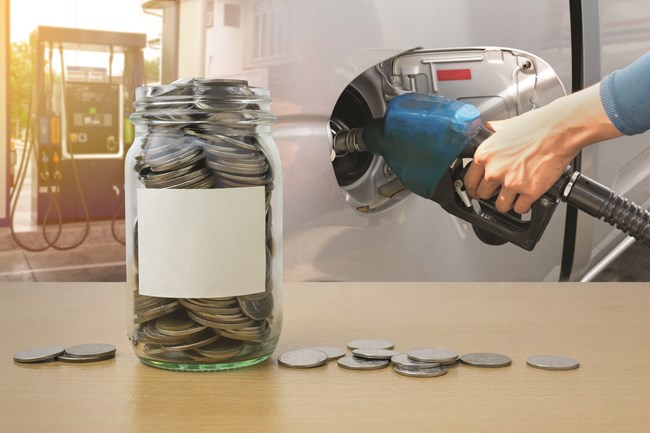We use cookies to ensure that we give you the best experience on our website. If you continue without changing your settings, we will assume that you are happy to receive all cookies on the Business Car website. However, if you would like to, you can change your cookies at any time

The start point for the best source of fleet information |
Record monthly fuel price increases reported
Date: 06 April 2022 | Author: Sean Keywood

The average cost of both petrol and diesel at UK filling stations rose by record amounts in March, according to the RAC.
It said that the average price of a litre of petrol rose by 11.62p during the month to 163.28p, which was itself a slight fall from the record high price of 167.3p seen on 22 March.
However, the rise in diesel prices was even more extreme, with the average litre up by 22.06p during the month to 177.29p, with a record high of 179.9p seen on 23 March.
Both rises exceeded by far the previous monthly records seen by the RAC, which were 7.43p for petrol and 8.43p for diesel.
The rises came despite the UK Government introducing a 5p cut in fuel duty during the month. The RAC said the difference made by that cut had been masked by a $6 rise in the price of a barrel of oil on the day it was announced, and that without the cut prices would be even higher.
RAC spokesman Simon Williams said: "March 2022 will go down in the history books as one of the worst months ever when it comes to pump prices - over the 22 years we have been monitoring pump prices as part of our Fuel Watch initiative we've never witnessed such extreme rises in prices over such a short period. To describe the current situation facing drivers at the forecourt as 'bleak' is therefore something of an understatement.
"Without question, these figures show in the starkest possible terms just how much fuel prices are contributing to the cost-of-living crisis which will be affecting households up and down the country.
"The fact pump prices have fallen so little [after the fuel duty cut] reflects the fact that the cost to retailers of buying fuel had been going up ahead of the Spring Statement. Had the Chancellor temporarily cut VAT rather than fuel duty on fuel, as we asked him to do, the impact on pump prices would have been immediate with drivers benefitting straight away.
"Cutting VAT would also have gone some way towards shielding drivers from future increases - something a cut in duty just can't do."











